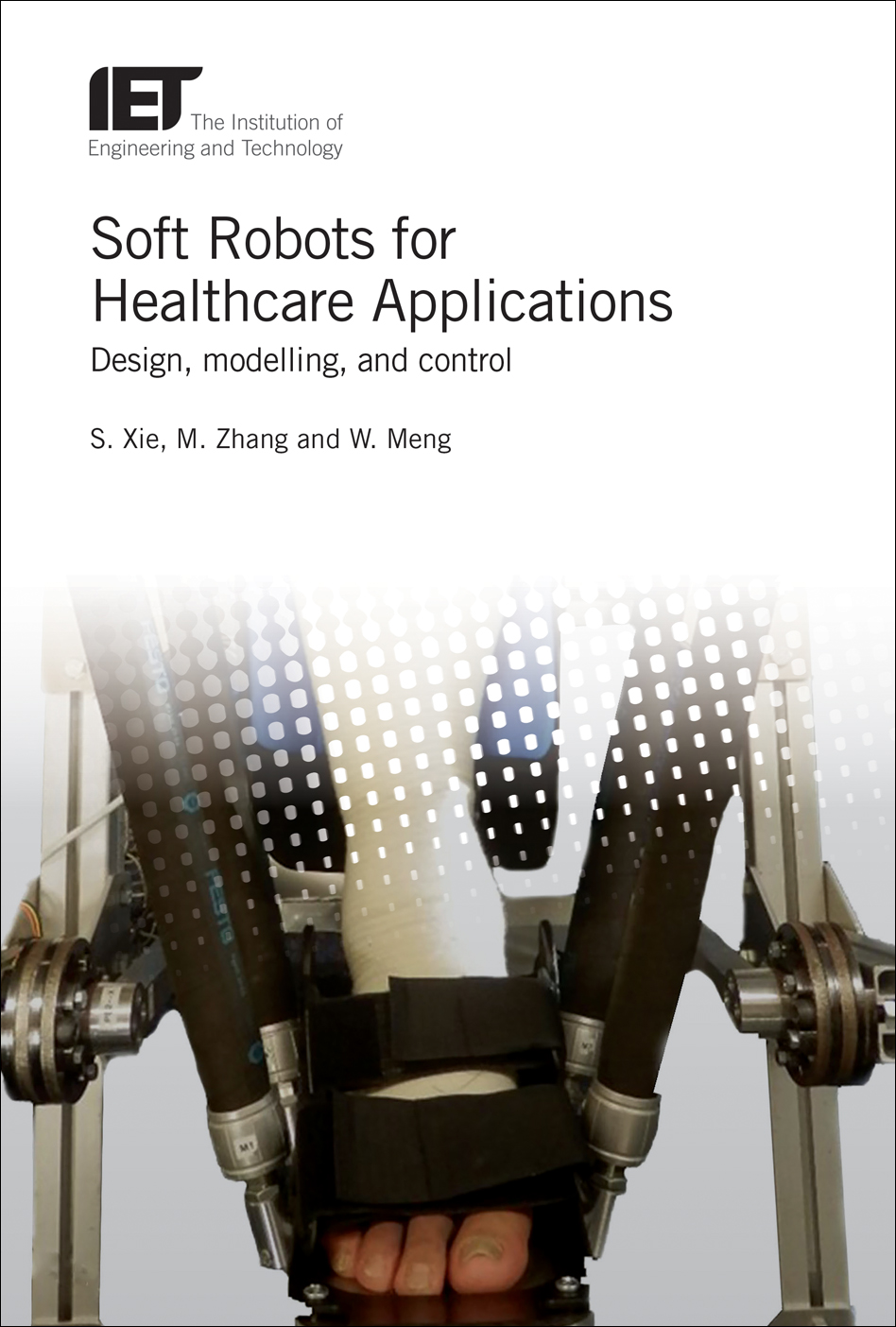- Agricultural Engineering and Technology
- Applied Physics
- Built Environment
- Computing and Networks
- Control, Robotics and Sensors
- Electrical Regulations
- Electromagnetics and Radar
- Energy Engineering
- Healthcare Technologies
- History and Management of Technology
- IET Codes and Guidance
- Manufacturing
- Materials, Circuits and Devices
- Model Forms
- Security
- Telecommunications
- Transportation

Soft Robots for Healthcare Applications
Design, modelling, and control
by Shane Xie, Mingming Zhang, Wei Meng
Robot-assisted healthcare offers benefits for repetitive, intensive and task specific training compared to traditional manual manipulation performed by physiotherapists. However, a majority of existing rehabilitation devices use rigid actuators such as electric motors or hydraulic cylinders which cannot guarantee the safety of patients; novel soft robots combining soft and compliant actuators with stiff skeletons offer a better alternative. This book focuses on the development of these soft robotics for rehabilitation purposes.
Topics covered include an introduction to soft robots and the state of the art of their use in healthcare; concept and modelling of a soft rehabilitation actuator - the Peano muscle; design of the reactive Peano muscle; soft wrist rehabilitation robot; development and control of a soft ankle rehabilitation robot (SARR); design, modelling and control strategies of a gait rehabilitation exoskeleton (GAREX); and conclusions and future work.
This book presents novel applications of mechatronics to provide better clinical rehabilitation services and new insights into emerging technologies utilized in soft robots for healthcare, and is essential reading for researchers and students working in these and related fields.
About the Author
Prof. Shane (Sheng Q.) Xie has been Director of the Mechatronics and Robotics programme and Director of the Rehabilitation Robotics Lab at the University of Leeds, UK, since 2017. He was previously Director of the Rehabilitation and Medical Robotics Centre, University of Auckland, New Zealand (2002-2016). He received his Ph.D. in Mechatronics Engineering from Huazhong University of Science and Technology, China, in 1998. He has published 7 books, and has been the Technical Editor for IEEE/ASME Transaction on Mechatronics and the Editor-in-Chief for the International Journal of Biomechatronics and Biomedical Devices.
Dr. Mingming Zhang is Executive Deputy Director of Auckland/Tongji Medical & Rehabilitation Equipment Research Centre at Tongji Zhejiang College, China. He received his Ph.D from the University of Auckland in 2016. His research interests include novel robot-assisted rehabilitation techniques, brain data mining and signal processing. He has over 25 papers and 7 Chinese patents.
Dr. Wei Meng is Lecturer at the School of Information Engineering, Wuhan University of Technology, Wuhan, China. From 2014 to 2016, he was a Doctoral Scholar in Mechatronics Engineering at The University of Auckland, New Zealand. His research interests include robot assisted rehabilitation, human-robot interaction, and adaptive impedance control. He is the author of 2 books as well as 3 Chinese patents.
Publication Year: 2017
Pages: 240
ISBN-13: 978-1-78561-311-1
Format: HBK
